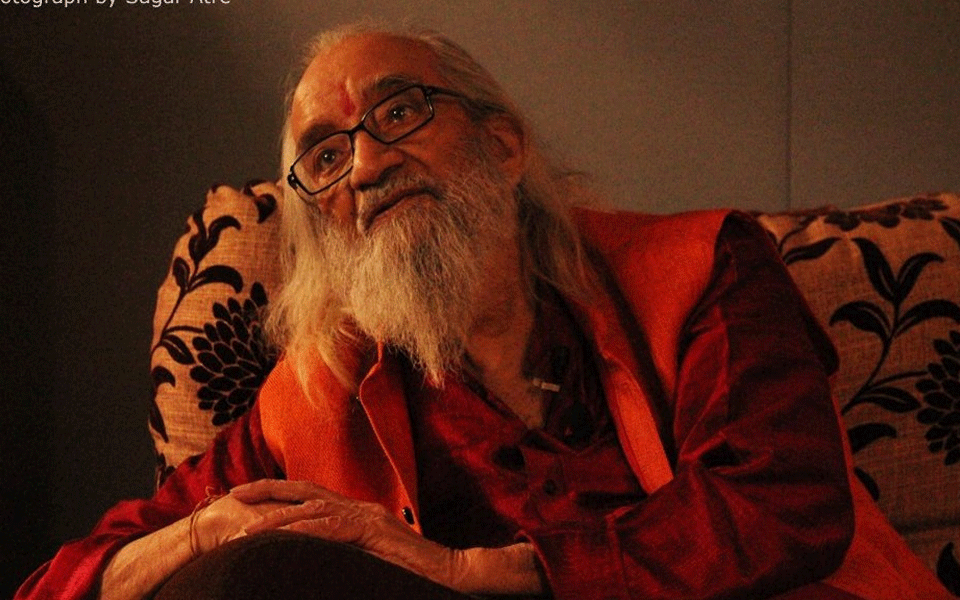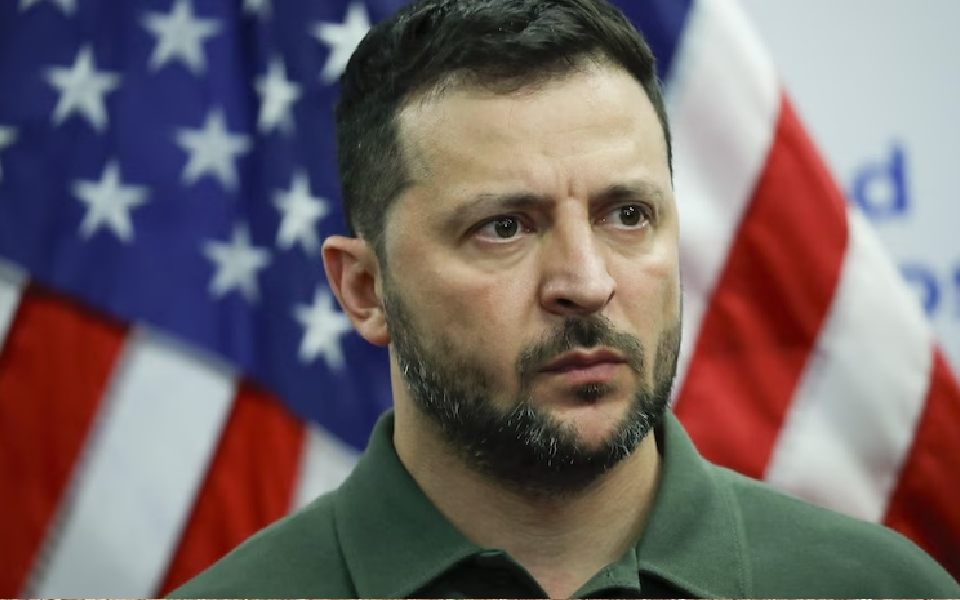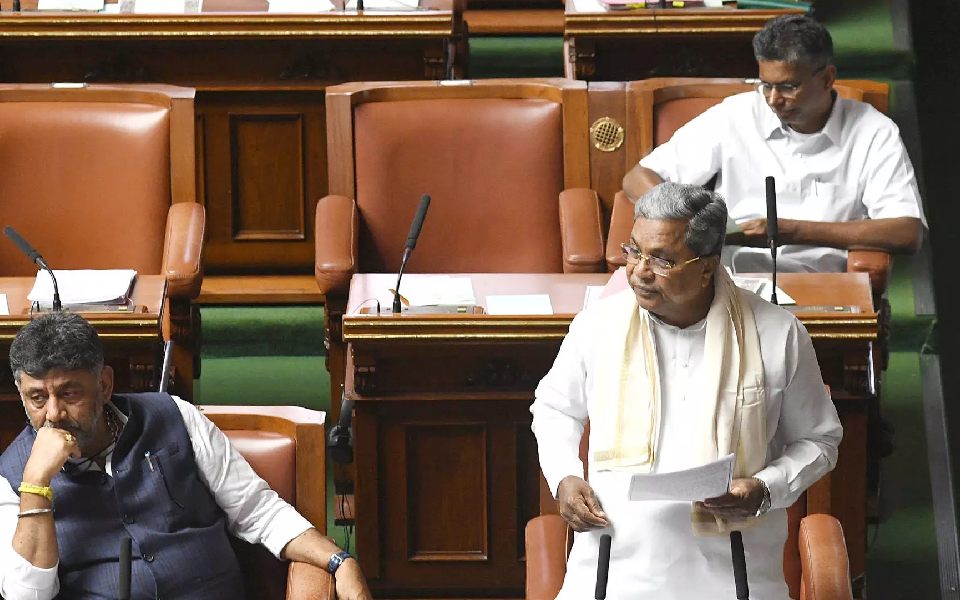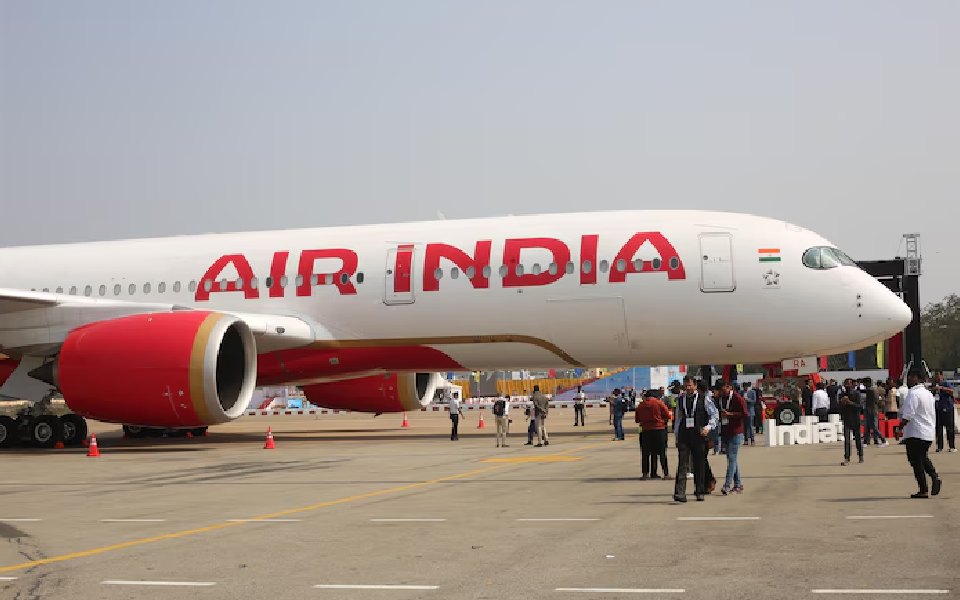Pune(PTI): Noted historian and Padma Vibhushan awardee Balwant Moreshwar Purandare, popularly known as Babasaheb Purandare, died at a Pune hospital on Monday after a brief illness, a doctor said.
Purandare (99), an authority on the Maratha warrior king Chhatrapati Shivaji Maharaj, was diagnosed with pneumonia a week ago and was admitted to the city's Deenanath Mangeshkar Hospital where he died.
He was diagnosed with pneumonia owing to advanced age and was on ventilator support in the hospital's intensive care unit. His health deteriorated on Sunday and he had been in an extremely critical condition since then, the doctor said.
On Sunday, the historian's declining health sparked rumours of his death in a section of the vernacular media and a number of local news portals.
Known by his moniker Shiv Shahir' (literally Shivaji's bard), Purandare was considered one of the pre-eminent authorities on Chhatrapati Shivaji Maharaj.
Raja Shivchhatrapati, Purandare's popular two-part, 900-page magnum opus on Shivaji Maharaj in Marathi, was first published in the late 1950s and has since been a staple in Marathi households, going through numerous reprints over decades.
Purandare had also conceived and directed the theatrical history extravaganza on Shivaji Maharaj's life titled Jaanta Raja in the mid-1980s.
Earlier this year, tributes had flown in from across the political spectrum on the occasion of the historian having completed 99 years, with Prime Minister Narendra Modi greeting Purandare via a video message.
Babasaheb's work is inspirational. I visited Pune to see Babasaheb's play Janata Raja', based on Chhatrapati Shivaji Maharaj. Even when Babasaheb used to visit Ahmedabad I used to attend his programmes, Modi had said.
Purandare, born on July 29, 1922, was awarded with Padma Vibhushan, India's second-highest civilian award in 2019.
Let the Truth be known. If you read VB and like VB, please be a VB Supporter and Help us deliver the Truth to one and all.
Brussels, Aug 12 (AP): Ukrainian President Volodymyr Zelenskyy said Tuesday that Russian President Vladimir Putin wants Ukraine to withdraw from the remaining 30 per cent of the Donetsk region that Ukraine controls as part of a ceasefire deal.
Zelenskyy said Russia's position had been conveyed to him by US officials ahead of a summit Friday between Putin and US President Donald Trump in Alaska on the war in Ukraine.
Zelenskyy reiterated that Ukraine would not withdraw from territories it controls, saying that would be unconsitutional and would serve only as a springboard for a future Russian invasion.
It remained unclear whether Ukraine would take part in the Friday summit. European Union also has been sidelined from the meeting, and they appealed to Trump on Tuesday to protect their interests.
Zelenskyy said at a news briefing in Kyiv that Putin wants the remaining 9,000 square kilometres of Donetsk under Kyiv's control, where the war's toughest battles are grinding on, as part of a ceasefire plan. He said the Russian position was conveyed to him by US officials.
Doing so would hand Russia almost the entirety of the Donbas, a region comprising Ukraine's eastern industrial heartland that Putin has long coveted.
Zelenskyy was offering new details on the call he held with Trump and special envoy Steve Witkoff, after the latter's bilateral meeting with Putin. Witkoff told Zelenskyy that Russia was ready to end the war and that there should be territorial concessions from both sides. Some European partners were also part of the call.
“And that, probably, Putin wants us to leave Donbas. That is, it didn't sound like America wants us to leave,” he said, recounting the call. Further meetings at the level of National Security Advisors further clarified what Russia actually wanted, Zelenskyy said.
Meanwhile, Russian forces on the ground have been closing in on a key territorial grab around the city of Pokrovsk, potentially to use as leverage in any peace negotiations.
Seeking Trump's ear before the summit
Trump has said he wants to see whether Putin is serious about ending the war, now in its fourth year. The US president has disappointed allies in Europe by saying Ukraine will have to give up some Russian-held territory. He also said Russia must accept land swaps, although it was unclear what Putin might be expected to surrender.
The Europeans and Ukraine are wary that Putin, who has waged the biggest land war in Europe since 1945 and used Russia's energy might to try to intimidate the EU, might secure favourable concessions and set the outlines of a peace deal without them.
European countries' overarching fear is that Putin will set his sights on one of them next if he wins in Ukraine.
Their leaders said Tuesday they “welcome the efforts of President Trump towards ending Russia's war of aggression against Ukraine.” But, they underlined, “the path to peace in Ukraine cannot be decided without Ukraine” and “international borders must not be changed by force.”
The Europeans on Wednesday will make a fresh attempt to rally Trump to Ukraine's cause at virtual meetings convened by German Chancellor Friedrich Merz. Trump did not confirm whether he would take part but did say “I'm going to get everybody's ideas” before meeting with Putin.
Russia holds shaky control over four of the country's regions, two in the country's east and two in the south.
Mykhailo Podolyak, an adviser to the chief of Zelenskyy's office, said anything short of Russia's strategic defeat would mean that any ceasefire deal would be on Moscow's terms, erode international law and send a dangerous signal to the world.
'A profoundly alarming moment for Europe'
Trump's seemingly public rehabilitation of Putin — a pariah in most of Europe — has unnerved Ukraine's backers.
The summit in Alaska is a “profoundly alarming moment for Europe,” said Nigel Gould-Davies, senior fellow at the International Institute for Strategic Studies in London.
According to Gould-Davies, Putin might persuade Trump to try to end the war by “accepting Russian sovereignty” over parts of Ukraine, even beyond areas that it currently occupies. Trump also could ease or lift sanctions which are causing “chronic pain” to the Russian economy.
That would provoke a “really serious split in the transatlantic alliance," he said.
The war isn't about Russia's territorial expansion but about Putin's goal of subordinating Ukraine, which would create the opportunity to threaten other parts of Europe, Gould-Davies said.
It was unclear whether the Europeans also were unsettled by Trump mistakenly saying twice he would be traveling to Russia on Friday to meet Putin. The summit is taking place in the U.S. state of Alaska, which was colonized by Russia in the 18th century until Czar Alexander II sold it to the U.S. in 1867.
Tuesday's European joint statement was meant to be a demonstration of unity. But Hungarian Prime Minister Viktor Orbán, who is Putin's closest ally in Europe and has tried to block EU support for Ukraine, was the only one of the bloc's 27 leaders who refused to endorse it.
Russia closes in on Pokrovsk
Russia appeared close to taking an important city in the Donetsk region, Pokrovsk.
Military analysts using open-source information to monitor the battles said the next 24-48 hours could be critical. Losing Pokrovsk would hand Russia an important victory ahead of the summit. It also would complicate Ukrainian supply lines to the Donetsk region, where the Kremlin has focused the bulk of military efforts.
“A lot will depend on availability, quantity and quality of Ukrainian reserves,” Pasi Paroinen, an analyst with the Finland-based Black Bird Group, wrote on social media late Monday.
Ukraine's military said its forces are fending off Russian infantry units trying to infiltrate their defensive positions in the Donetsk region. The region's Ukrainian military command on social media Monday acknowledged that the situation remains “difficult, unpleasant and dynamic.”
Elsewhere in Ukraine, a Russian missile attack on a military training facility left one soldier dead and 11 others wounded, the Ukrainian Ground Forces posted on social media. Soldiers rushing to shelters were hit with cluster munitions, according to the Ukrainian Ground Forces.





